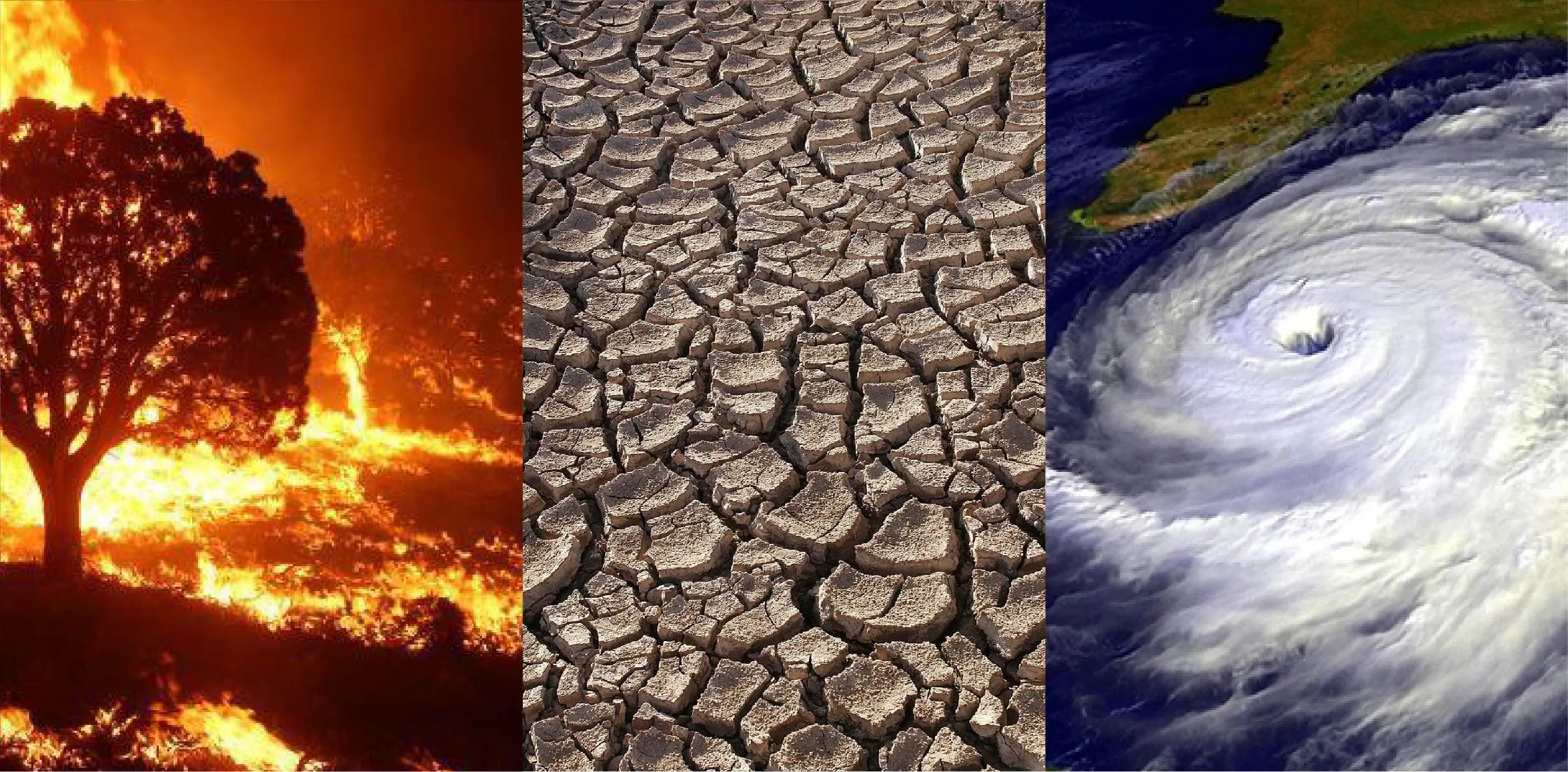2024: A year of unwanted global warming records

An overview of alarming trends and serious consequences
The year 2024 is shaping up to be one of unwelcome new records for global warming, with steadily rising global average temperatures and serious consequences for biodiversity, health and socio-economic systems.
The Copernicus Climate Change Service (C3S) has published a report confirming that January 2024 was the warmest January on record, with a global average temperature of 13.14°C. This is 0.70°C above the 1991-2020 average for January and 0.12°C above the temperature in January 2020, the previous record high.
A worrying trend:
January 2024 marks the eighth consecutive month with a record temperature for that month of the year. Although the global temperature anomaly in January 2024 was lower than those in the last six months of 2023, it remains significantly higher than any other before July 2023.
The impact of global warming:
Compared to the pre-industrial period (1850-1900), January 2024 was 1.66°C warmer. The global average temperature for the last 12 months (February 2023–January 2024) is also the highest on record, exceeding the 1991-2020 average by 0.64°C and the pre-industrial 1850-1900 average by 1.52°C.
Regional variations:
Temperatures in Europe varied significantly in January 2024, being well below the 1991-2020 average in the northern countries and well above average in the south of the continent. Outside Europe, temperatures were well above average in eastern Canada, northwest Africa, the Middle East and Central Asia, and below average in western Canada, the central US and most of eastern Siberia.
Oceans warming:
Although El Niño has begun to weaken in the equatorial Pacific, marine air temperatures in general have remained unusually high. The global mean sea surface temperature (SST) for January over 60°S-60°N reached 20.97°C, a record high for January, 0.26°C warmer than the previous record in January 2016. Since 31 January, daily SST for 60°S-60°N has reached new absolute records, surpassing previous highs of 23 and 24 August 2023.
Australia exceeds global warming targets
Australia's land surface has warmed by 1.5°C since 1910, exceeding global climate change targets. The year 2023 was the eighth-warmest year in Australia's history, with national average temperatures 0.98°C above the 1961-1990 average, reports The Guardian.

The year 2023: A year marked by record temperatures
2023 was an exceptional year in terms of temperatures, reports the Max Planck Institute. Starting in June, each month of June has been warmer than the last, setting new records for high temperatures. The second half of the year was particularly warm, with temperatures more than 1.5 degrees Celsius above pre-industrial levels. There were even days with temperatures 2 degrees above the pre-industrial average.
Alarming consequences:
The global temperature increase in 2023 was 1.48 degrees Celsius, an alarming figure that confirms the warming trend. This warming has serious consequences for the planet, from increased extreme weather events to rising sea levels and melting glaciers.
Extreme weather events in various regions of the world, including:
- Heat waves in Southern Europe, China and North America;
- Vegetation fires in Greece, Canada and Siberia;
- Hurricanes in the Atlantic Ocean;
- Floods in Greece, China and Central Europe.

Climate change is making extreme events more frequent and severe
Studies by the European Xaida consortium confirm that anthropogenic climate change is making extreme weather and climate events more likely and more severe. These play an increasingly important role in biodiversity decline. Higher temperatures have forced animals and plants to move to higher altitudes or higher latitudes, with many migrating to the Earth's poles, with widespread consequences for ecosystems. The risk of species extinction increases with each degree of warming.
Serious health consequences
The Intergovernmental Panel on Climate Change (IPCC) 2021 report concluded that climate risks are occurring faster and will become more severe sooner than previously expected, and adaptation will be more difficult as global warming increases. Climate change affects health in numerous ways, including:
- Increased mortality and illness due to increasingly frequent extreme weather events such as heatwaves, storms and floods;
- Perturbation of food systems;
- Increased zoonotic diseases, food-, water- and vector-borne diseases;
- Mental health problems.
What does the future hold?
The year 2024 is a clear wake-up call. The global warming trend is accelerating, and the consequences are getting worse. Urgent and concerted global action is needed to reduce greenhouse gas emissions and limit global temperature rise.
What can we do?
Each of us can help fight climate change by adopting a more sustainable lifestyle:
- Reducing energy consumption;
- Using public transport, cycling or walking;
- Resource responsible consumption;
- Recycling and composting;
- Supporting policies and companies committed to fighting climate change.














